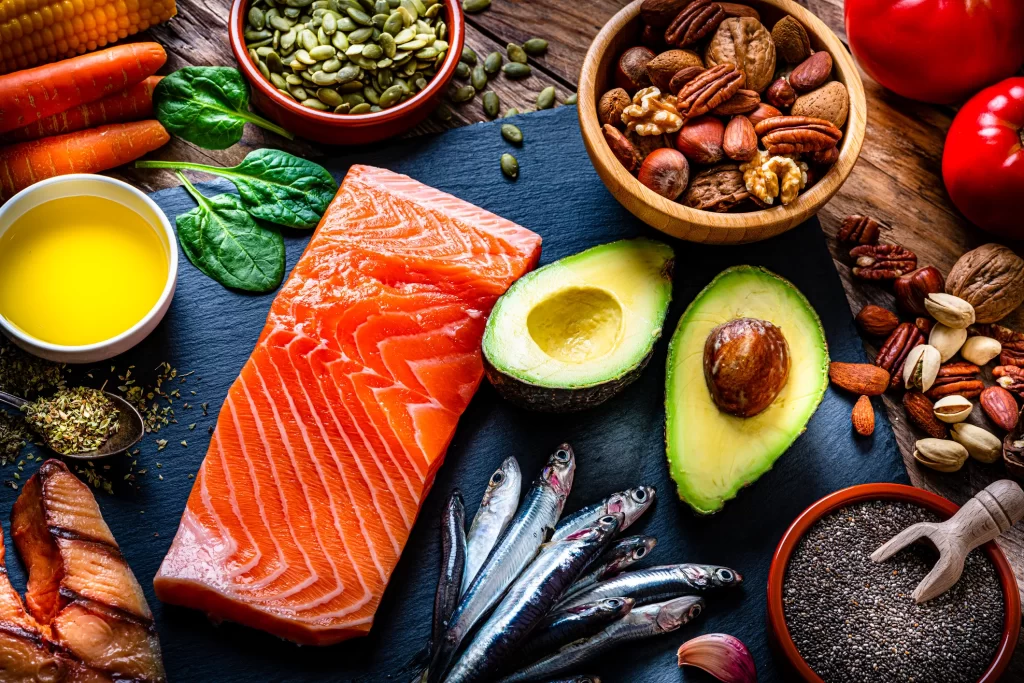Eating healthy doesn’t have to mean eating bland or boring foods. In fact, many nutrient-dense foods are low in calories, making them excellent choices for weight management and overall health. By choosing foods with high nutritional value and minimal caloric content, you can nourish your body without overloading it with excess calories. Let’s dive into the 15 foods that provide maximum nutrition with almost no calories.

Why Choose Low-Calorie, Nutrient-Dense Foods?
Although counting calories isn’t always the most effective approach to weight loss, monitoring your calorie intake remains crucial for maintaining a healthy diet. Low-calorie, nutrient-rich foods allow you to maximize the benefits of your meals without exceeding your caloric needs. These foods are typically high in vitamins, minerals, antioxidants, and fiber while being low in unhealthy fats and sugars.
The 15 Best Low-Calorie, Nutrient-Dense Foods
1. Cucumber
Cucumbers are hydrating and refreshing, containing about 95% water. They are perfect for adding crunch to salads or infusing water with a light, crisp flavor. At only 16 calories per 100 grams, cucumbers are an excellent low-calorie snack or ingredient.
2. Asparagus
Asparagus is known for its detoxifying properties and its ability to promote satiety. With just 20 calories per 100 grams, this vegetable is a versatile ingredient that can be grilled, roasted, or steamed as a healthy side dish.
3. Broccoli
Often hailed as a superfood, broccoli is packed with fiber, vitamin C, and plant-based protein. A 100-gram serving contains just 34 calories, making it a nutrient powerhouse that’s perfect for stir-fries, salads, or steamed side dishes.
4. Zucchini
Zucchini is a versatile vegetable with only 17 calories per 100 grams. It can be spiralized into zoodles, added to baked goods, or incorporated into sautéed dishes for a low-calorie meal option.
5. Mushrooms
Mushrooms are not only low in calories but also rich in antioxidants and essential nutrients. Varieties like portabella and chanterelles contain 22 and 38 calories per 100 grams, respectively. Use them in soups, sautés, or even as a meat substitute in burgers.
6. Kale
Kale is a nutrient-dense leafy green that provides fiber, vitamins, and minerals with just 49 calories per 100 grams. Enjoy it in salads, smoothies, or baked into crunchy chips for a guilt-free snack.
7. Cauliflower
Cauliflower is known for its versatility and health benefits, including anti-inflammatory properties. It has only 25 calories per 100 grams and can be used to make low-carb pizza crusts, mashed cauliflower, or roasted dishes.
8. Celery
Often touted as a zero-calorie food, celery is mostly water and contains just 16 calories per 100 grams. It’s a great choice for snacking, especially when paired with a healthy dip like hummus.
9. Cabbage
Cabbage is a cruciferous vegetable that’s linked to reduced risks of cancer and heart disease. It’s low in calories, with 25 calories per 100 grams, and can be used in soups, stir-fries, or coleslaws.
10. Onions
Onions are a staple in many dishes, offering a wealth of flavonoids and antioxidants. They contain 40 calories per 100 grams and are essential for adding depth to soups, sautés, and sauces.
11. Carrots
Carrots are well-known for their benefits to eye health, thanks to their high beta-carotene content. A 100-gram serving contains only 41 calories and makes for a crunchy, naturally sweet snack or addition to cooked dishes.
12. Brussels Sprouts
Brussels sprouts are another cruciferous vegetable loaded with vitamins, minerals, and fiber. They have just 43 calories per 100 grams and can be roasted, sautéed, or steamed for a healthy side dish.
13. Watermelon
Despite its natural sweetness, watermelon is incredibly low in calories, with just 30 calories per 100 grams. It’s rich in hydration and antioxidants, making it a refreshing treat during warmer months.
14. Oranges
Oranges are a citrus fruit bursting with vitamin C and other beneficial nutrients. They contain 47 calories per 100 grams and make a great snack or juice base.
15. Apples
While slightly higher in calories compared to others on this list, apples still offer tremendous nutritional value at 52 calories per 100 grams. They’re high in fiber and antioxidants, making them a satisfying and healthy snack option.
Additional Low-Calorie Foods to Consider
Other nutrient-dense, low-calorie options include:
- Beets
- Tomatoes
- Grapefruit
- Lemons
- Turnips
Tips for Incorporating These Foods Into Your Diet
- Meal Prep: Chop and store vegetables like celery, cucumbers, and carrots for quick snacks.
- Mix and Match: Combine different vegetables for colorful and nutrient-packed salads.
- Experiment with Recipes: Use cauliflower for pizza crusts, zucchini for noodles, or kale for smoothies.
- Keep it Fresh: Opt for fresh or lightly cooked vegetables to retain their nutrient content.
- Add Flavor: Use herbs, spices, and healthy dressings to enhance the taste of your meals without adding extra calories.
FAQs About Low-Calorie, Nutrient-Dense Foods
1. What are low-calorie, nutrient-dense foods? Low-calorie, nutrient-dense foods are those that provide essential vitamins, minerals, and other nutrients without being high in calories. Examples include cucumbers, kale, and watermelon.
2. Can eating low-calorie foods help with weight loss? Yes, low-calorie foods can support weight loss by allowing you to eat larger portions without consuming too many calories, helping you feel full and satisfied.
3. Are fruits considered low-calorie foods? Some fruits, like watermelon and oranges, are low in calories while being high in vitamins and antioxidants. However, they should still be consumed in moderation.
4. How can I make low-calorie foods more flavorful? You can enhance the flavor of low-calorie foods by using fresh herbs, spices, lemon juice, or low-calorie dressings.
5. What’s the best way to cook low-calorie vegetables? Steaming, roasting, or grilling are the best cooking methods to preserve nutrients while keeping calorie counts low.




